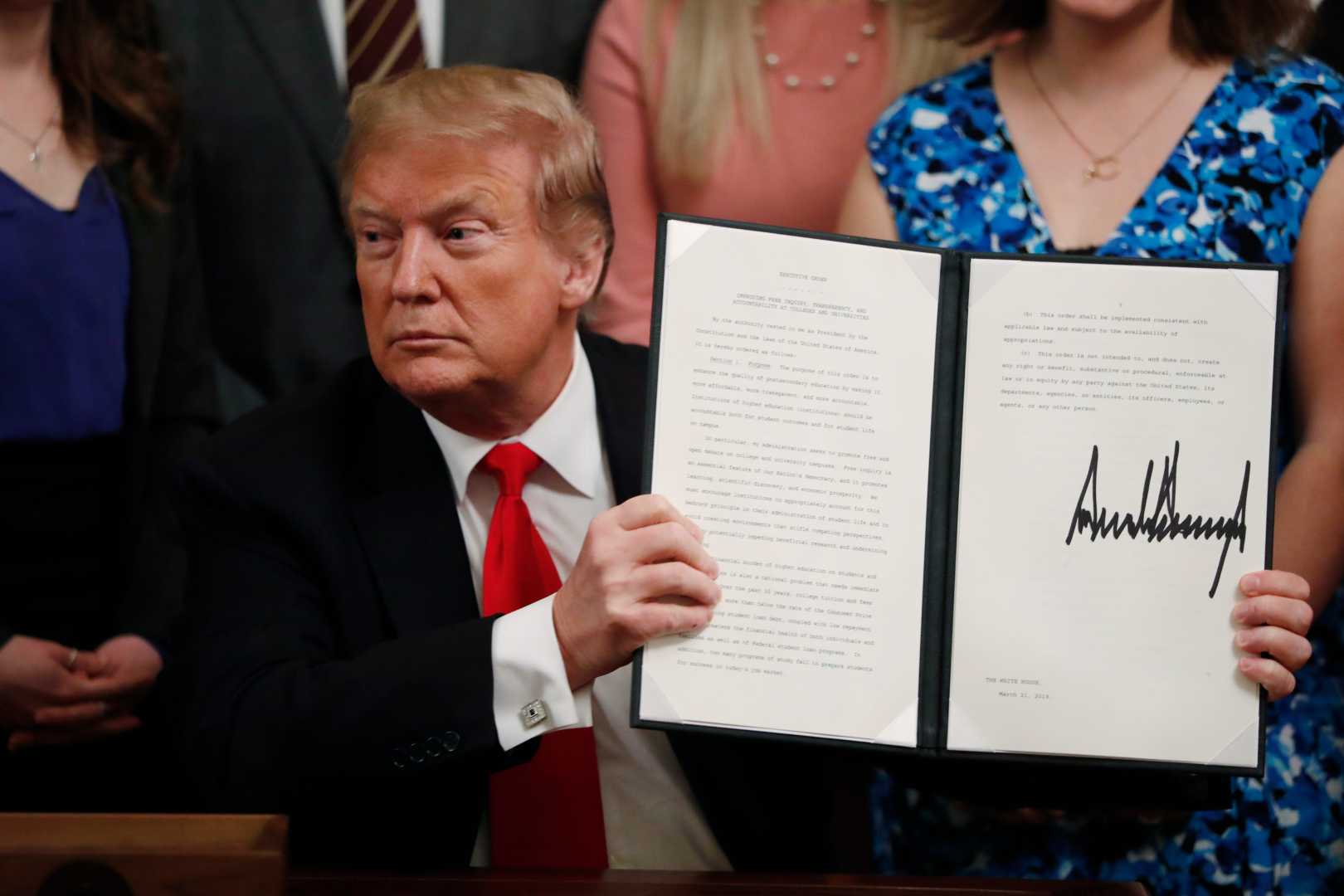Politics
Trump’s Free Speech Order Sparks Debate Over Censorship and Misinformation

WASHINGTON, D.C. — President Donald Trump signed an executive order titled “Restoring Freedom of Speech and Ending Federal Censorship” on Jan. 31, 2025, reigniting debates over government influence on social media and the spread of misinformation. The order, which Trump framed as a defense of free speech, has drawn both praise and criticism, with some accusing the administration of hypocrisy and others lauding it as a necessary check on federal overreach.
The executive order targets what Trump described as the Biden administration‘s efforts to “censor Americans’ speech on online platforms.” It prohibits federal employees from engaging in or facilitating actions that “unconstitutionally abridge” free speech. Trump’s move comes amid ongoing controversies over social media companies’ handling of misinformation, particularly during the COVID-19 pandemic.
Washington Post columnist Catherine Rampell criticized the order, calling it “the start of an Orwellian effort to root out wrongthink from government ranks and the private sector.” Rampell pointed to the CDC‘s decision to halt its weekly morbidity and mortality data report, a practice in place since 1952, as evidence of a broader crackdown on dissent. “These actions appear related to efforts to expunge so-called wokeness from government,” she wrote.
Rampell also accused Trump allies of engaging in “speech- and thought-policing,” citing a letter from 19 Republican state attorneys general urging Costco to end its diversity, equity, and inclusion (DEI) policies. She further highlighted Rep. Dan Crenshaw‘s criticism of Apple CEO Tim Cook for not renaming the Gulf of Mexico in Apple Maps.
Meta CEO Mark Zuckerberg, who has recently aligned himself with Trump’s rhetoric, claimed on Joe Rogan‘s podcast that Biden administration officials pressured social media companies to remove COVID-19 misinformation. “People from the Biden administration would call up our team and scream at them and curse,” Zuckerberg said, though he acknowledged no direct threats were made.
The Supreme Court ruled 7-2 in June 2024 that the Biden administration did not violate the First Amendment by urging social media companies to moderate COVID-19 content. Justice Amy Coney Barrett, a Trump appointee, noted that platforms began suppressing such content before federal interventions.
Trump’s executive order has been praised by some, including the Internet Association, a trade group representing major tech companies. However, critics argue that the order is overly broad and could hinder public safety efforts. The Foundation for Individual Rights and Expression (FIRE) has proposed a more measured approach, calling for transparency in government communications with social media companies.
Meanwhile, Trump’s lawsuits against media organizations, including CBS and the Des Moines Register, have raised questions about his commitment to free speech. “Free speech for me but not for thee seems to be the guiding principle,” said Andy Craig of the libertarian Institute for Humane Studies.
As the debate over censorship and misinformation continues, Trump’s executive order has become a flashpoint in the broader struggle over the boundaries of free speech in the digital age.












